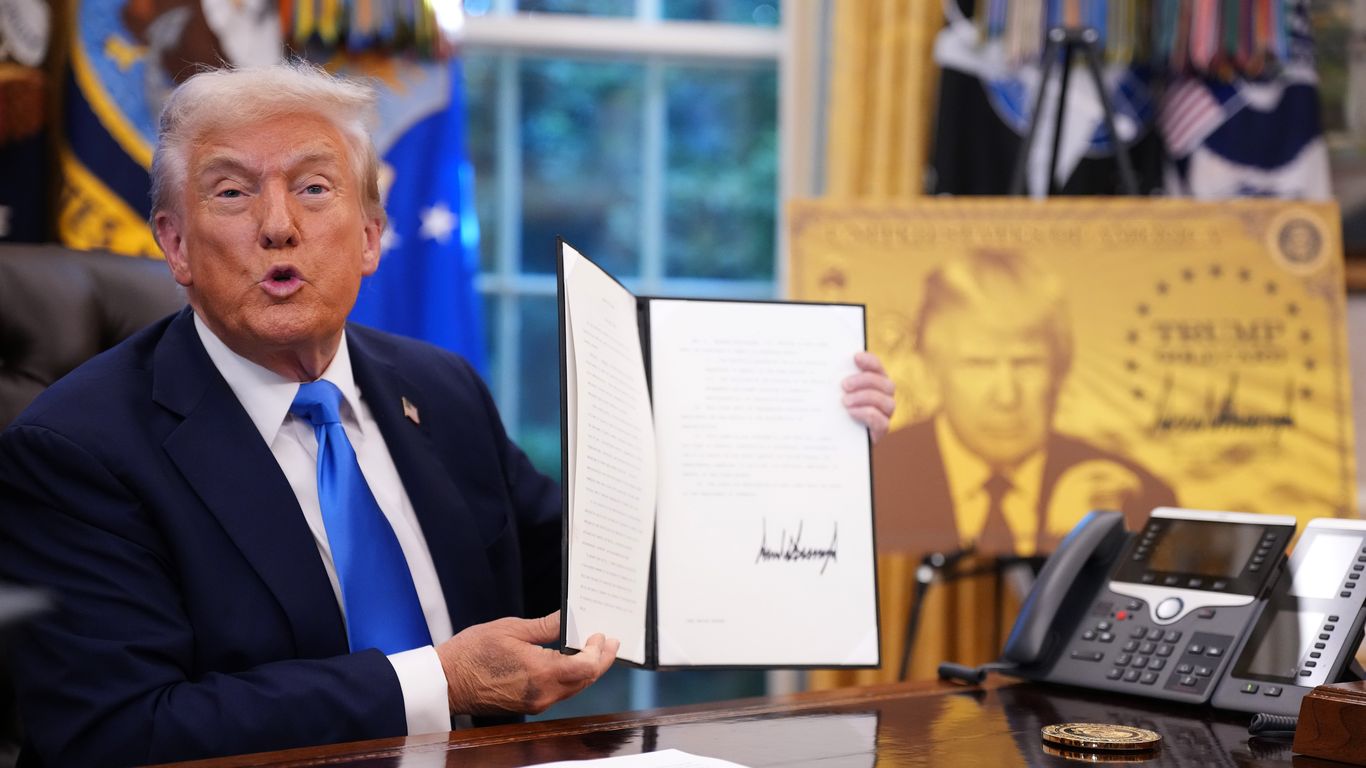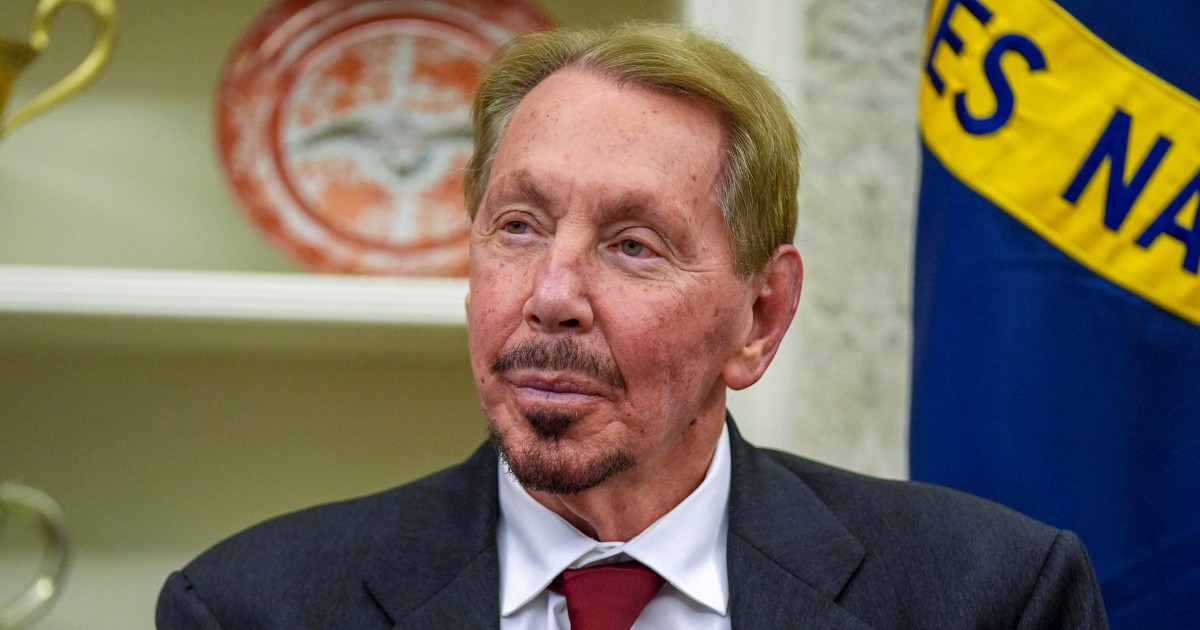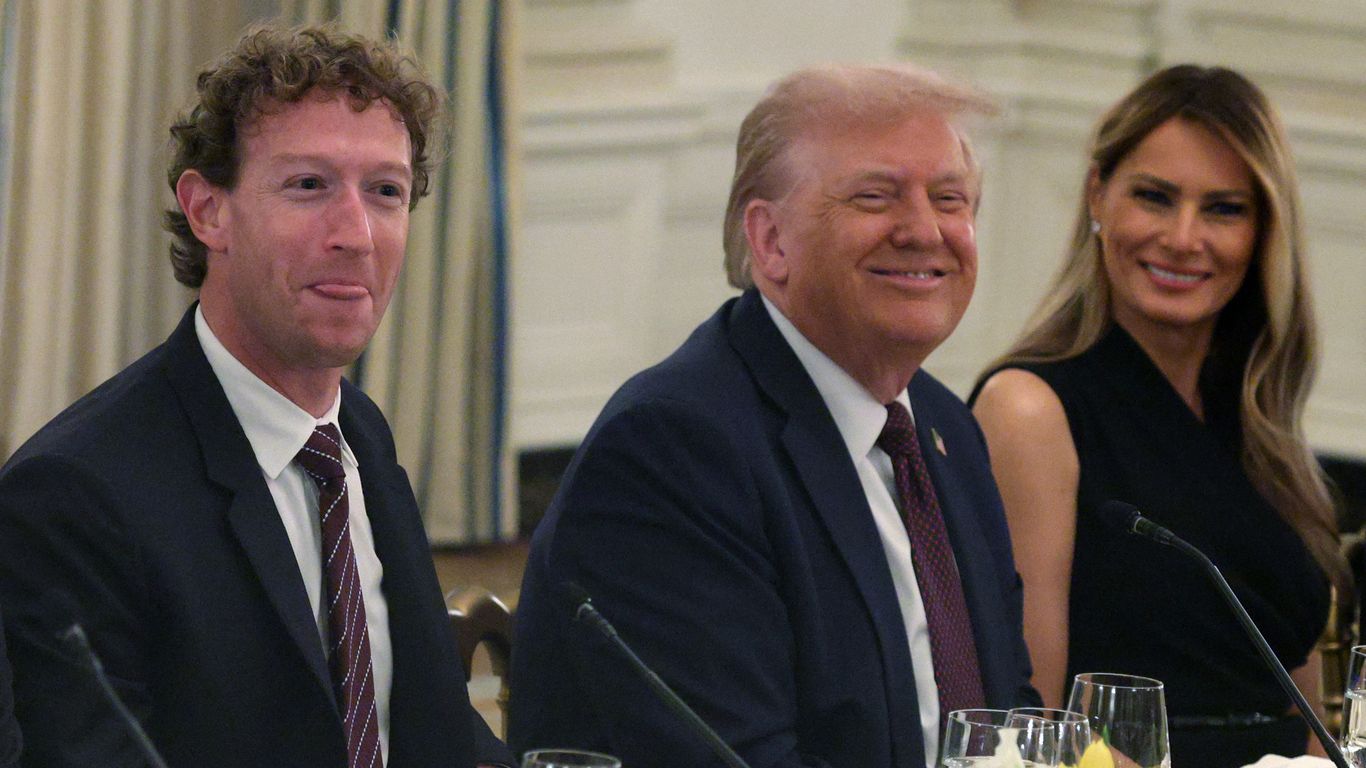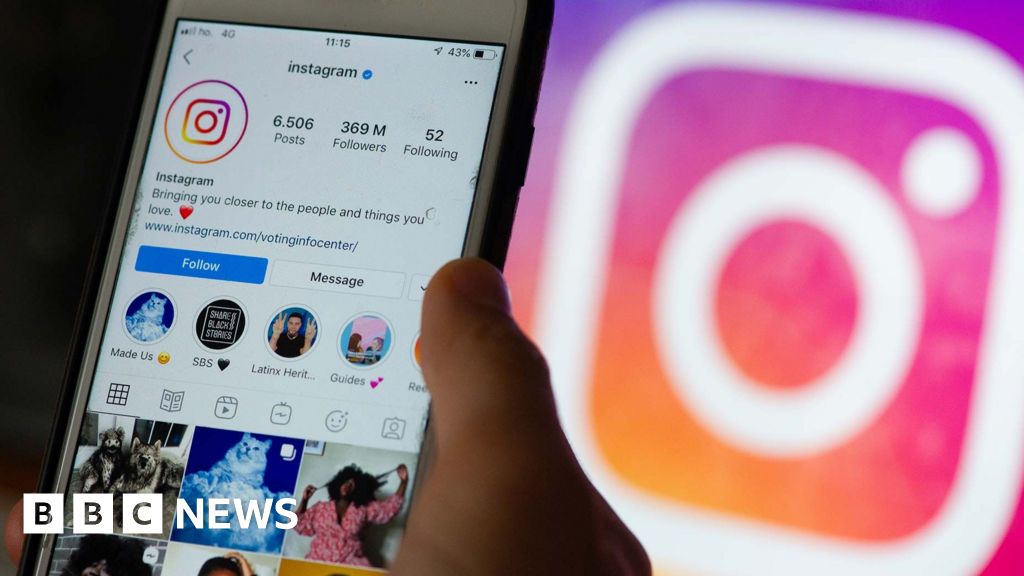Oracle's Role in the TikTok Deal

Introduction
The recent news of Oracle's involvement in the TikTok deal has stirred up controversy and speculation about the future of the popular social media app. According to Financial Times, the White House has stated that the US owners will lease and rebuild ByteDance's recommendation software, with the help of Oracle. This move is seen as a compromise to address the Trump administration's concerns over national security and data privacy.
Key Details
Oracle's role in the deal will involve retraining the TikTok algorithm to ensure compliance with US regulations and prevent potential data breaches. This retraining of the algorithm will aim to enhance user privacy and security, as well as address concerns over the app's content and recommendations. This move is also seen as a way to keep the popular app operational in the US, while also addressing the concerns of the government.
Impact
The involvement of Oracle in the deal has caused a shift in the dynamics of the tech industry, as the company is primarily known for its software and database services. This move could also lead to a potential restructuring of the TikTok algorithm, which could impact the app's user experience and content recommendations. The retraining of the algorithm could also set a precedent for other social media platforms in terms of complying with regulations and addressing security concerns in the future.
About the Organizations Mentioned
Oracle
## Overview Oracle Corporation is a global leader in enterprise software and cloud computing, renowned for its database management systems and comprehensive suite of business applications. Headquartered in Austin, Texas, Oracle serves organizations of all sizes across industries, providing the technological backbone for operations, analytics, and digital transformation[6]. Its mission centers on helping people see data in new ways, discover insights, and unlock possibilities through innovation[5]. ## History and Evolution Founded in 1977 by Larry Ellison, Bob Miner, and Ed Oates as Software Development Laboratories in Santa Clara, California, the company released its flagship Oracle Database in 1979—a pioneering relational database management system that revolutionized data storage and access[2][5]. Renamed Oracle Corporation in 1982, the company grew rapidly, going public in 1986 and expanding globally[2][5]. By the 1990s, Oracle was recognized as the world’s largest database management company, with innovations like Oracle7 cementing its industry leadership[5]. Oracle’s expansion into enterprise applications—such as ERP, CRM, HCM, and supply chain management—solidified its role as a one-stop provider for business software[6]. The 2010s marked a strategic pivot to cloud computing, with the launch of Fusion Cloud applications and the aggressive build-out of data centers to support its public cloud offerings[2]. ## Key Achievements Oracle’s achievements include the development of the first commercially viable relational database, the creation of integrated enterprise software suites, and the consolidation of its own global operations using its technology, saving over $1 billion[5]. The company’s cloud infrastructure now supports more than a thousand government customers across at least 60 data centers, and it offers over 100 cloud services[2]. A defining moment came in 2025, when Oracle secured a $300 billion, five-year agreement with OpenAI, along with major contracts with xAI and Meta, to deliver unprecedented cloud and AI infrastructure
TikTok
**TikTok** is a global social media platform specializing in short-form videos, owned by the Chinese company ByteDance. It allows users to create and share videos ranging from a few seconds to an hour, leveraging advanced recommendation algorithms to connect creators with vast audiences, making it a leading driver of viral trends in culture, music, fashion, and commerce[6][2]. The platform originated from **Douyin**, launched in China in September 2016, which quickly amassed 100 million users within a year. TikTok was introduced as the international counterpart, operating independently but sharing a similar interface and features[6]. Since then, TikTok has experienced explosive growth, surpassing 1.6 billion monthly active users globally by 2025, ranking as the fifth most-used social platform worldwide. Its U.S. user base alone exceeds 136 million, with users spending an average of 58 minutes daily on the app, opening it over 15 times per day—outpacing competitors[3][5][2]. TikTok's business model is heavily based on advertising, which accounted for 70% of its $25 billion revenue in 2025. Its e-commerce arm, TikTok Shop, generated $30 billion in gross merchandise value, doubling from the previous year, with American users spending about $1,200 annually on in-app purchases[2][3]. The platform continuously innovates with AI-powered tools enabling creative content like AI filters and educational clips, fueling engagement and brand interaction[2][4]. Despite its success, TikTok faces challenges including scrutiny over data privacy, misinformation, and content moderation. Some countries have banned or restricted its use on government devices due to security concerns[6]. Nevertheless, TikTok remains a dominant force in social media and digital marketing, evolving into a comprehensive growth partner for brands by integrating AI, creative advertising solutions, and deep audience analytics to drive full-funnel business impact[4][1].
ByteDance
ByteDance is a Chinese multinational internet technology company founded in 2012 by Zhang Yiming and his team, headquartered in Beijing. It is best known for developing TikTok (Douyin in China), a short-video social media platform that has become a global phenomenon with around 1.9 billion monthly active users worldwide as of 2021. ByteDance’s portfolio also includes the news aggregation app Toutiao, video editing tool CapCut, and e-commerce platforms such as TikTok Shop and Douyin Mall. The company operates more than a dozen digital products serving diverse markets, including China, the U.S., and Southeast Asia[1][4]. ByteDance’s rapid growth is driven by its strong focus on artificial intelligence (AI) and content recommendation algorithms, which personalize user experiences and fuel engagement. By 2025, its valuation surged to between $330 billion and $400 billion, supported by a $12 billion investment in AI infrastructure and advances like OmniHuman-1, an AI system capable of creating realistic videos from a single image. Its Q2 2025 revenue reached $48 billion, reflecting success in monetizing AI-driven platforms and expanding e-commerce to reduce reliance on advertising[2][3][5]. Despite its commercial achievements, ByteDance has faced significant challenges, including scrutiny over data privacy, allegations of surveillance linked to the Chinese government, and geopolitical tensions leading to attempts to ban TikTok in the U.S. and service shutdowns in India. It has responded by emphasizing TikTok’s operational independence, with separate data governance structures and headquarters in Los Angeles and Singapore. Regulatory concerns continue to shape its global strategy[1][3][6]. ByteDance exemplifies the evolving landscape of global tech, balancing innovation and geopolitical complexity. Its entrepreneurial culture, summed up by the motto "Always Day 1," drives continuous innovation in AI, content, and commerce, positioning it as a defining player in the intersection of social media and artificial intelligence[
Financial Times
## Overview The **Financial Times (FT)** is a globally renowned daily newspaper focused on international business, economic news, and financial markets, headquartered in London[2]. It is recognized for its in-depth analysis, editorial independence, and distinctive salmon-pink paper—a hallmark since 1893, originally chosen for cost-saving reasons but now a symbol of prestige[1][4]. The FT’s motto, “Without fear and without favour,” underscores its commitment to unbiased reporting[4]. ## What the Organization Does The FT delivers news across print and digital platforms, with editions tailored for the UK, Europe, the US, Asia, and the Middle East[1]. It features daily coverage of markets, companies, politics, and technology, along with special reports on industries, countries, and emerging trends[2]. Its weekend edition, **FT Weekend**, offers broader cultural and lifestyle content, while the FT Group provides subscription services for organizations seeking comprehensive global insights[2]. As of 2023, the FT boasts 1.3 million subscribers, with the vast majority accessing content digitally—a testament to its successful adaptation to the digital age[2]. ## History and Key Achievements Founded in 1888 by James Sheridan and his brother, the FT began as a four-page paper for London’s financial community, initially named the *London Financial Guide* before adopting its current title[1][3][4]. It quickly distinguished itself from competitors, notably the *Financial News*, by printing on pink paper—a tradition that endures[1][4]. A pivotal moment came in 1945 when the FT merged with its rival, the *Financial News*, consolidating its position as a leading financial publication[1][2][4]. Owned by Pearson from 1957, the FT expanded internationally, launching its first non-UK edition in Frankfurt in 1979 and entering the US market in 1985[1]. In 2015, Japanese media
White House
The **White House Office** is a central organizational component within the Executive Office of the President of the United States (EOP), tasked with supporting the President in managing day-to-day operations, policy formulation, and political affairs. It is headed by the White House Chief of Staff and staffed by senior aides who report directly to the President, including those with titles such as Assistant to the President and Deputy Assistant to the President. These staff members are mostly political appointees without the need for Senate confirmation, allowing the President considerable discretion in shaping the office to suit each administration's priorities[1]. Historically, the White House Office was established in 1939 through Reorganization Plan 1 and Executive Order 8248 to provide immediate assistance to the President. It functions as the nerve center for presidential staff, physically located primarily in the West Wing, and plays a pivotal role in managing the President’s policy agenda, communications, and political strategy. Its flexible organization allows each President to tailor the staff composition and roles according to their governance style and objectives[1]. In the current context of 2025, the White House Office operates under the administration of President Donald J. Trump, who returned to office after the 2024 election. His administration emphasizes rejecting prior policies deemed extremist and focuses on enhancing quality of life, economic growth, and American energy dominance. The administration includes Vice President JD Vance and First Lady Melania Trump, among others, with a Cabinet advising on various governmental functions[4][6]. Recent initiatives linked to the White House’s operational sphere include the establishment of a new **Department of Government Efficiency (DOGE)** aimed at modernizing federal technology and software to boost government productivity. The DOGE agenda is implemented through the renamed United States DOGE Service within the Executive Office, reflecting a concerted push to leverage technology for administrative modernization[5]. Notably, the White House Office also coordinates national security and homeland security functions through the National Security Council staff, underscoring its central role















